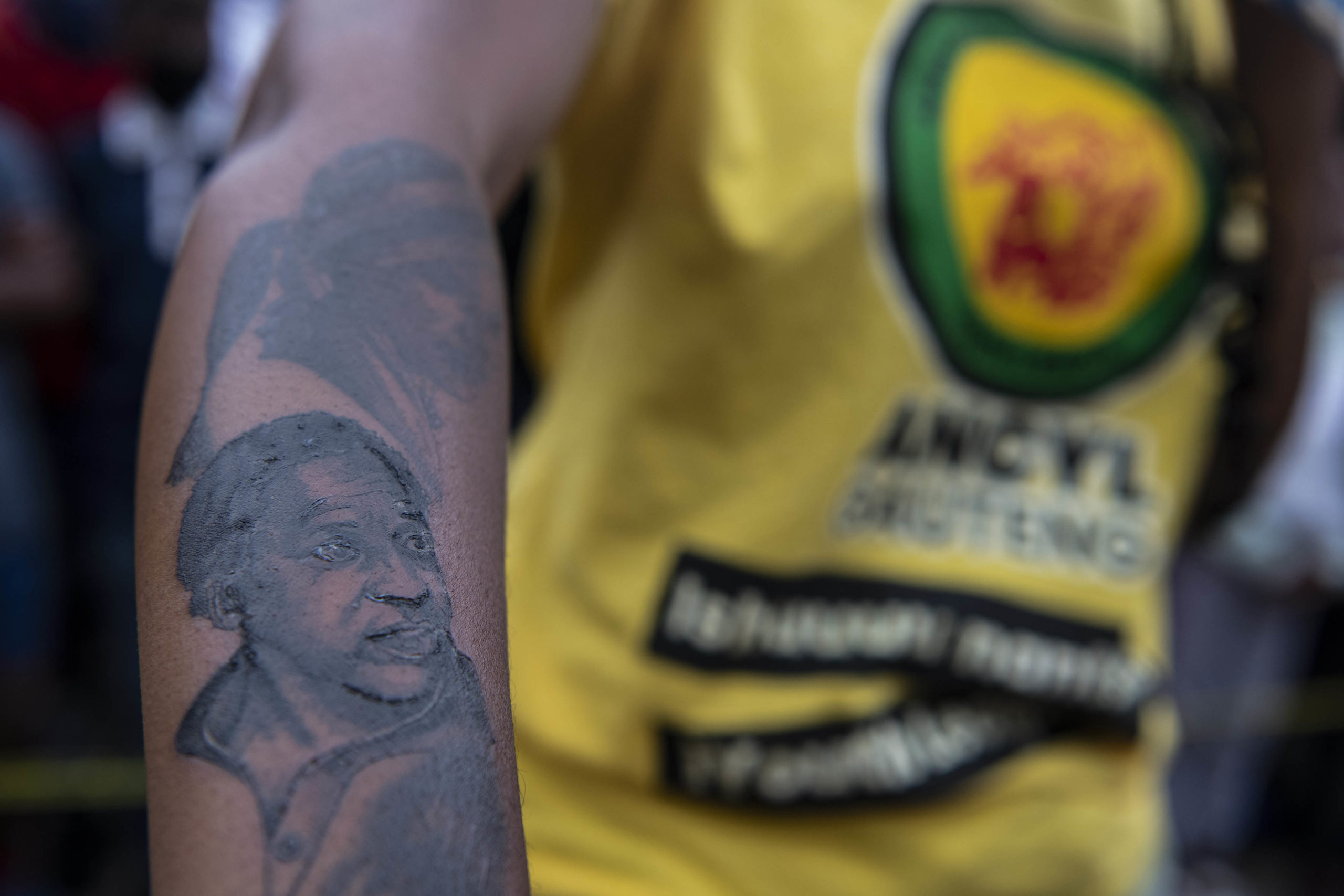ANC puts discipline before democracy
The ANC is asking many communities to elect councillors they previously rejected. In an election where the ruling party’s dominance is no longer guaranteed, it may prove to be a gamble.
Author:
28 October 2021

With the local government elections close at hand, the national executive committee of the ANC is imploring voters to put discipline before disaffection when they go to the polls. The party’s highest decision-making body has told them that, come 1 November, they must support ANC candidates they rejected during the nomination process.
Speaking on the campaign trail in Alexandra on 25 October, President Cyril Ramaphosa delivered a speech that was more apology than assurance. When confronted by the placards and chants of incensed would-be voters from the township’s biggest ward, Ward 108, Ramaphosa conceded that “in many places, the system to elect our candidates has gone wrong”.
Ward 108 is the latest in a lengthening list of wards around South Africa where the ANC’s candidate election process has apparently disregarded the residents’ vote in favour of the local party choice. Despite being soundly beaten during the community election process, Deborah Francisco, the two-term Ward 108 councillor, was submitted as the ANC’s candidate for the election.
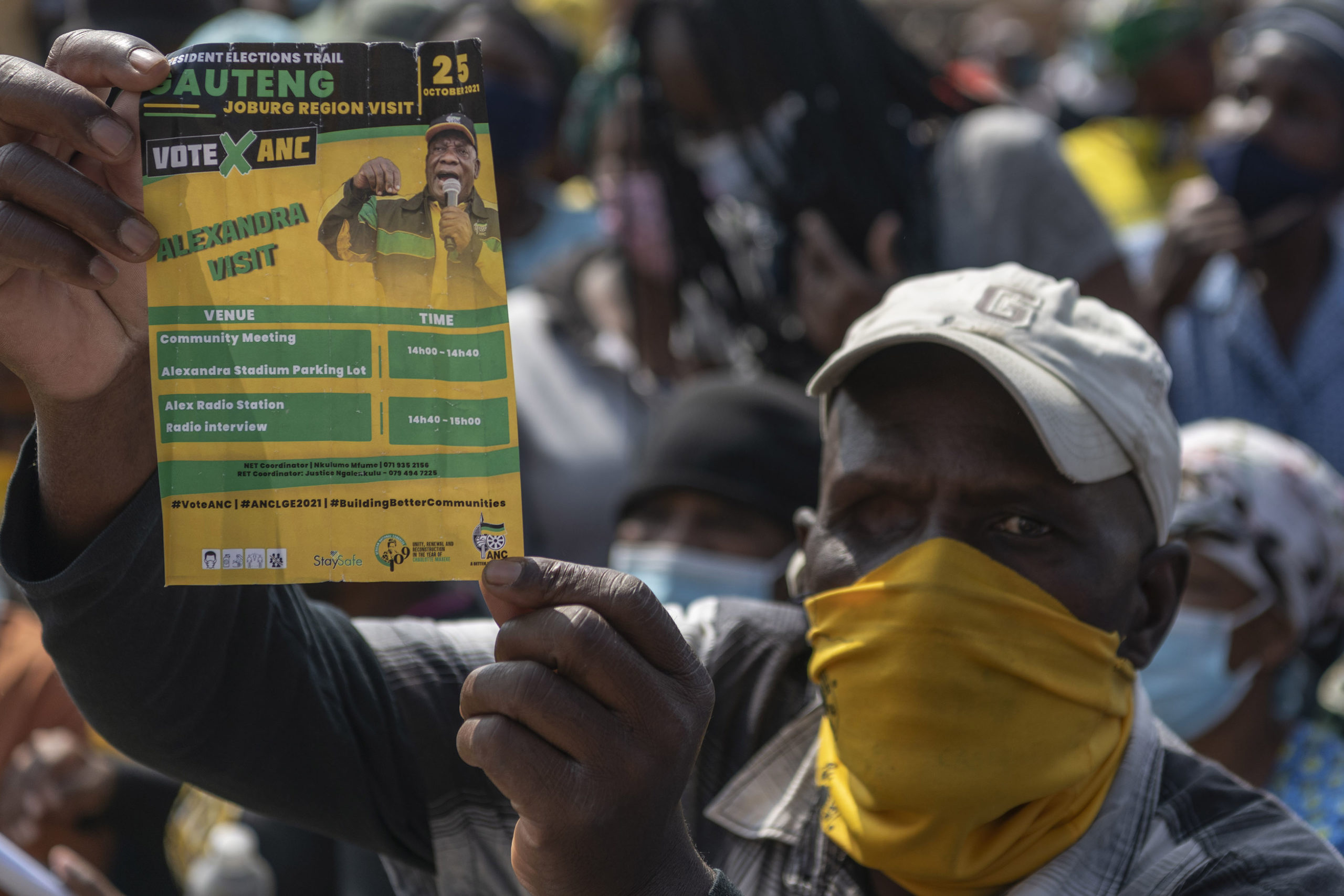
In an effort to allay the tensions spilling out of Ward 108, Ramaphosa, who was nearly two hours late for the rally, assured demonstrators that community-elected ward councillors were “central to our renewal process … We wanted you to elect your own candidates. We no longer wanted to bring them to you.”
But Ramaphosa acknowledged that “in some places, it did not go as planned”. Nevertheless, he implored Alexandra residents to abide by the decisions taken by ANC structures. In what he called an act of “democratic centralism”, ANC voters should elect councillors, even if they were rejected during the candidate nomination process. “I know your blood is boiling. But just go to the polls.”
When pushed on Francisco’s apparently irregular nomination, Gauteng regional secretary of the ANC Dada Morero said the party’s nomination of the councillor was a result of a “technical problem”. He claimed that “a process to rectify that” would be put in place after the elections.
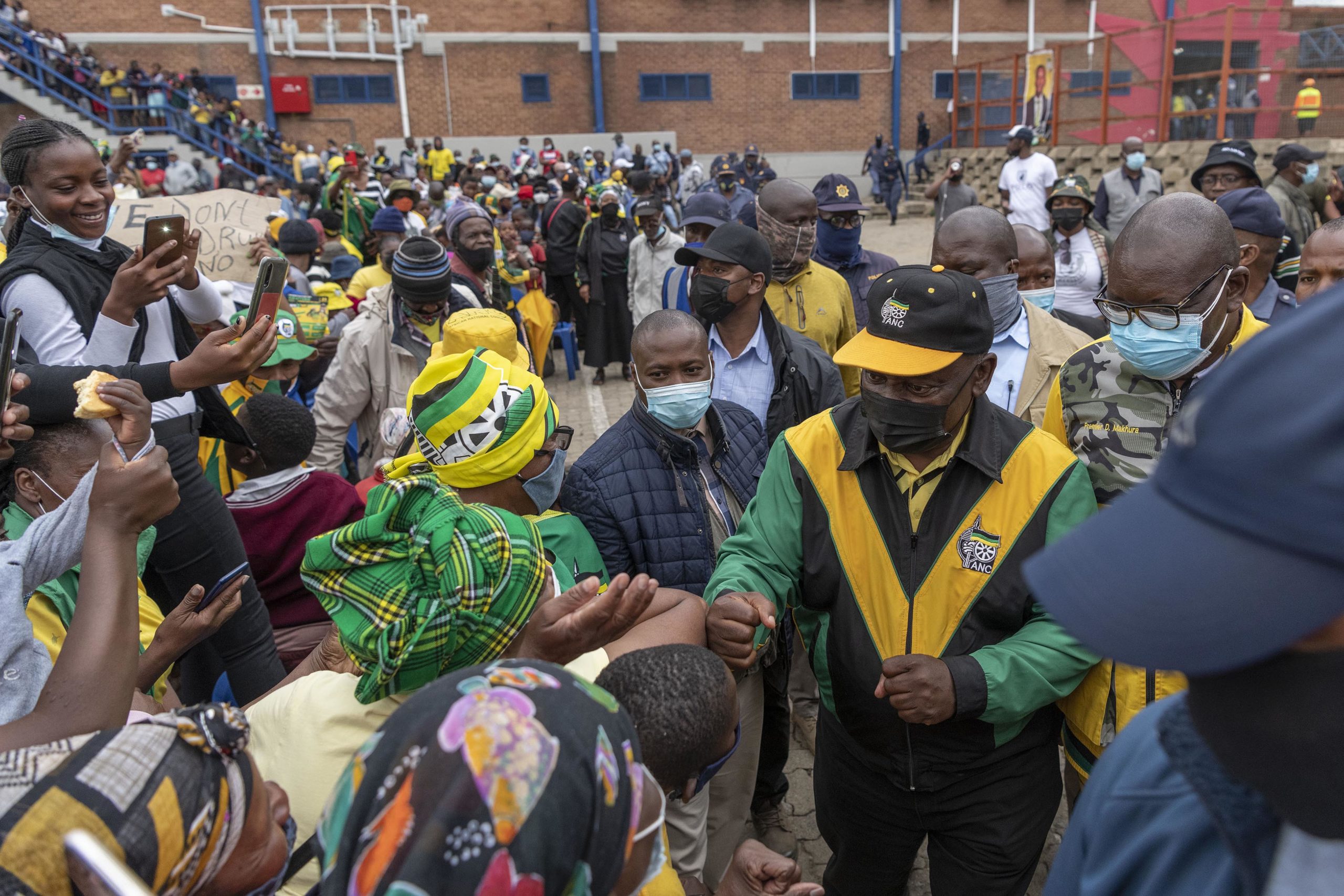
Countryside, township and shack settlement
The ANC’s disregard for community choices, which Ramaphosa called “a widespread problem”, goes well beyond Alexandra. Communities voicing their anger at the party’s imposition of unelected candidates now stretch from the rural Eastern Cape to Gauteng’s townships and shack settlements.
Slovo Park, south of Johannesburg, made headlines in 2014 when it took the City of Johannesburg to court to compel the then ANC-led municipality to apply for funding to upgrade the shack settlement of more than 7 000 homes. In a later groundbreaking ruling, the high court compelled the City to upgrade Slovo Park. One of the leaders of those litigious efforts, Dan Moalahi, is now fighting to become part of that municipality.
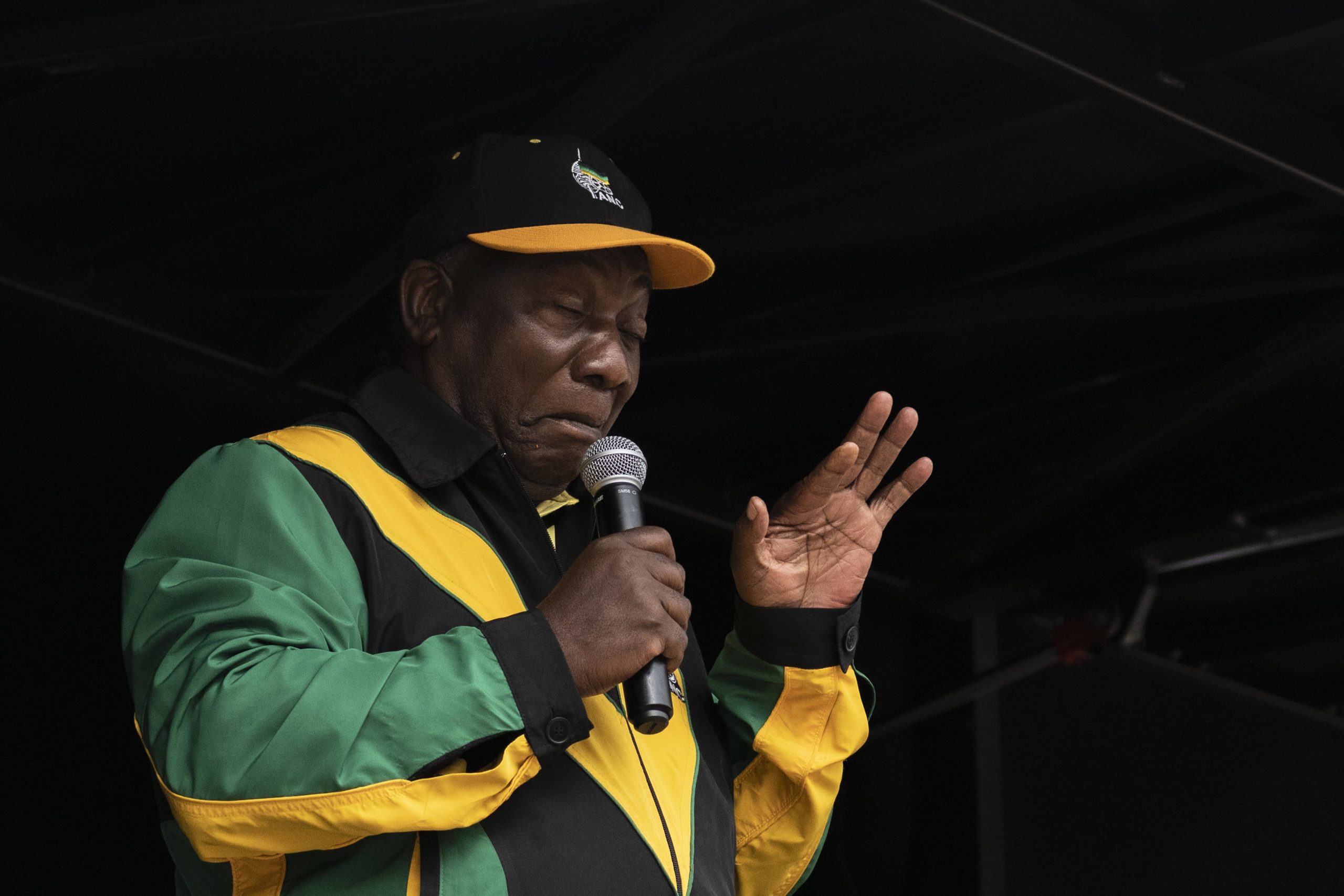
Moalahi, who won his community’s vote before the regional ANC structures imposed a different candidate to contest the elections, claimed that having activists closer to state resources was just another tactic in the broader struggle for local development. Morero, who explained that the ANC wanted a candidate who represented the interests of the parts of the ward that were not made up of shack settlements, said it is “within the rights of the party to make an assessment” of that nature. He added that the nomination of ward councillors was “also about the interests of the party”.
The current widespread tensions around candidate nominations in the party suggest that the upcoming local government elections will last well beyond 1 November, where votes cast for ANC candidates, perhaps more than any other party, will be both a choice for the future of local government and a choice for the future of the party.
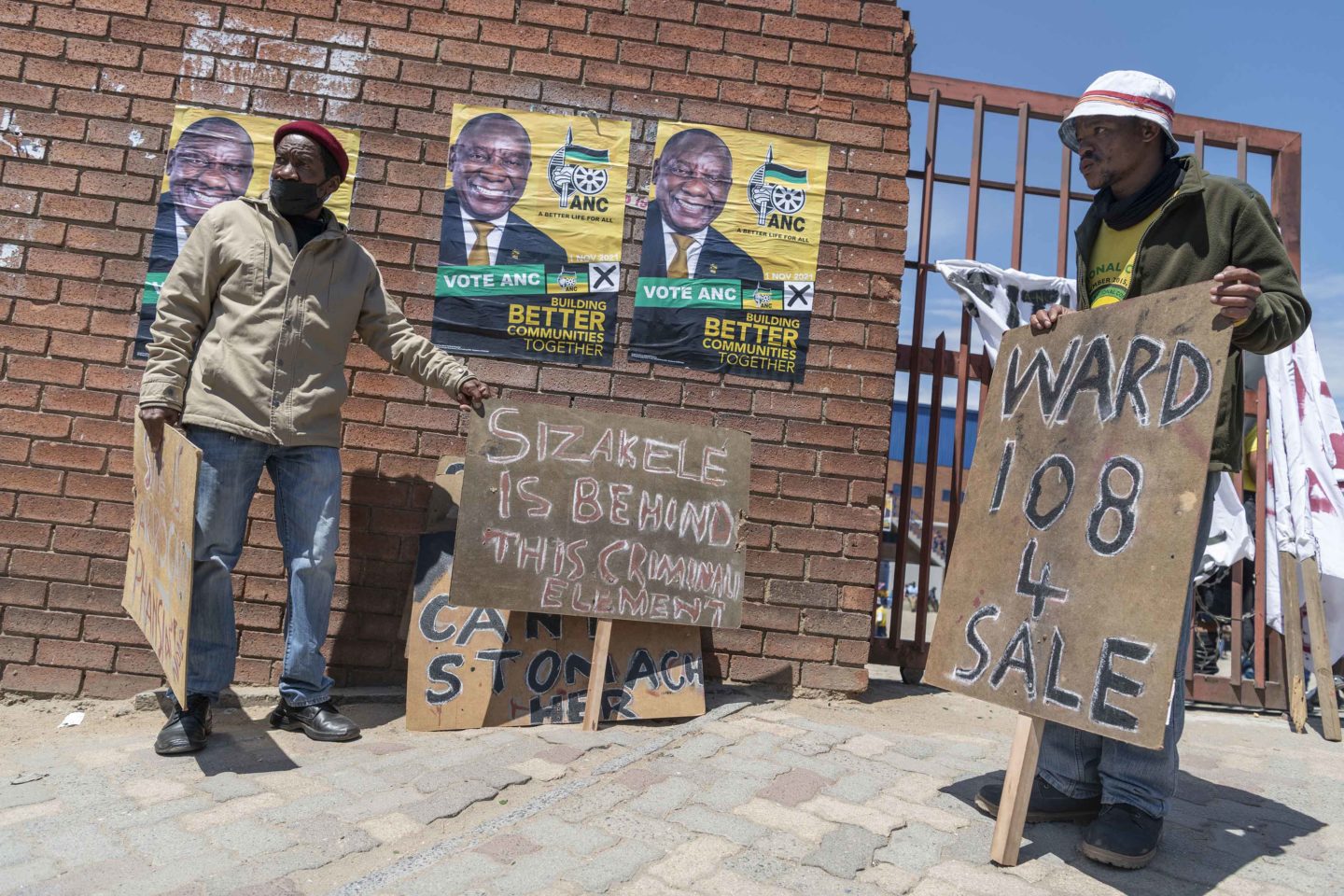
Ward councillors, who enjoy unique access to state resources, have an outsized impact on the nature of the ANC’s branch politics, and the contests for that access are often bloody. (Francisco, who dismissed her critics in Alexandra as “thugs” and “criminals”, claimed that threats have been made on her life in the aftermath of her irregular nomination.) It is branch votes that go on to shape the party at a zonal, regional, provincial and eventually national level. And, with a national conference scheduled for early 2022, the apparently unending battle for the soul of the ANC is poised to reach fever pitch.
It appears that, while the ANC’s campaigning for government positions may be reaching a feverish end, the many slow-burning fights to determine the character of the party at a branch level are only just beginning. The run-up to the 2022 national conference, which will likely be a defining moment in the ruling party’s internal battles, begins with the many arm wrestles for council positions that will be decided in the coming weeks.
